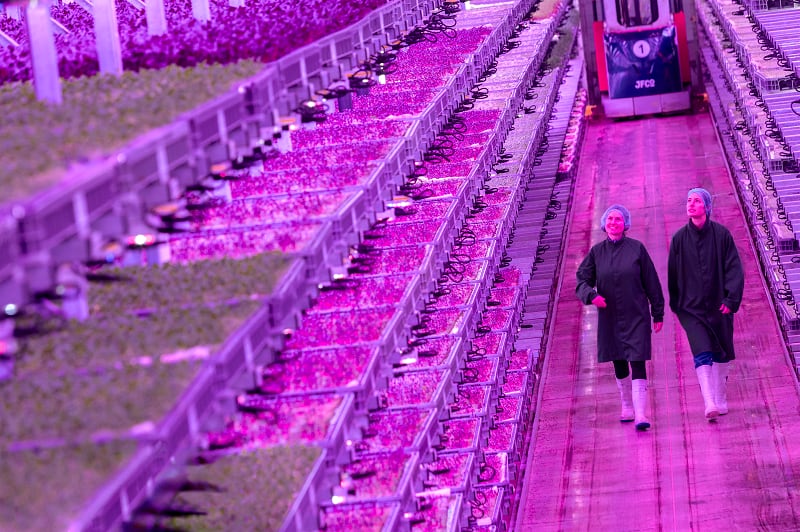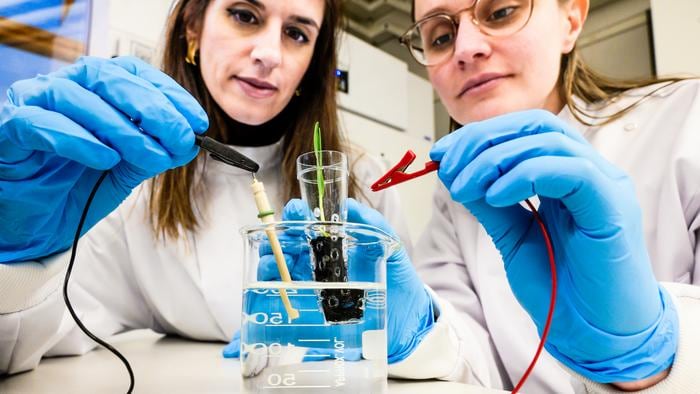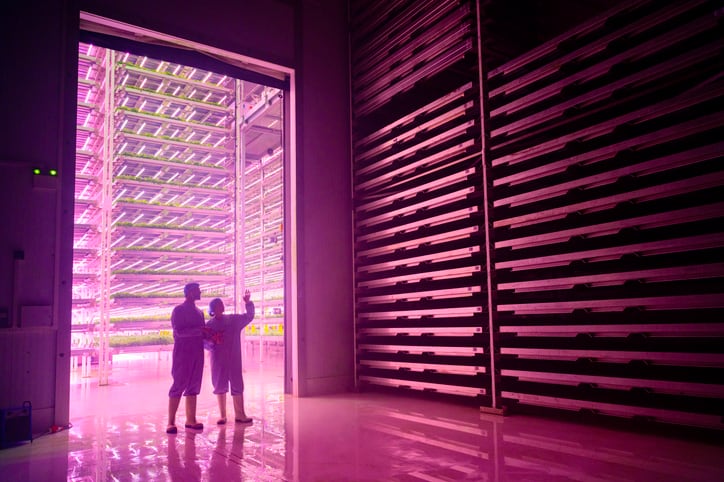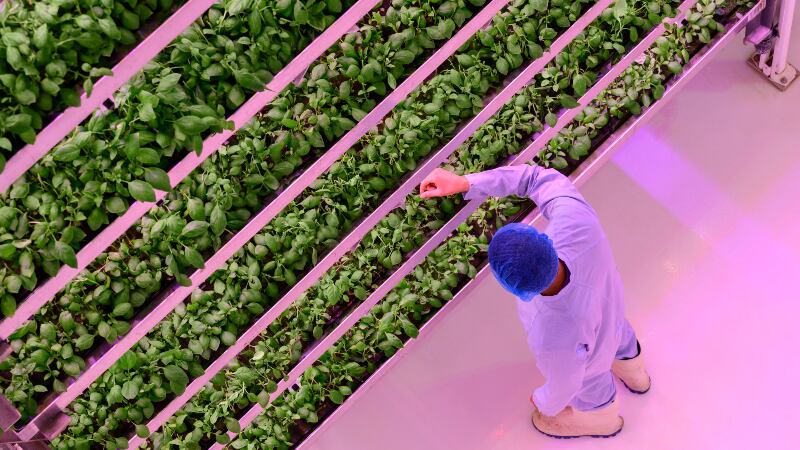The company opened JFC1 in Lincolnshire in 2018 and a dedicated innovation centre in Bristol in 2022. The second facility has a growing space of 14,448 square metres (155,517 square feet), equating to 3.6 acres.
Crops grown at the new facility include basil, coriander, flat-leaf parsley, dill, green lettuce, red lettuce, Baby Leaf Pak Choi, Bulls Blood, Mizuna, Komatsuna (commonly known as Japanese Spinach), and Baby Leaf Cress (a variety of watercress).
“We expect JFC2 and future farms to produce over 50kg per square metre each year,” James Lloyd-Jones, founder and CEO, told AgTechNavigator. “This means that a farm the size of JFC2 would grow over 500 tonnes of food each year or which is 1.5 tonnes per day.”
The company was founded by Lloyd-Jones in 2017 and in 2019 secured backing from on The Ocado Group, one of the largest pure online grocers in the world.
There has, however, been a slew of recent failures in the global CEA and vertical farming market, principally owing to rising energy costs. “A lot of vertical farmers have focused on lights, but temperature and humidity control are where the real energy guzzle has traditionally been this is why it's been a core focus for us opening this new site, its small changes and learnings from JFC1 that mean this system now accounts for a much smaller proportion of our energy usage,” explained head of growing at Jones Food Company, Glyn Stephens.
“Irrigation is another massive innovation in this farm and the system in JFC2 is boundary-pushing, ground-breaking, utterly unique and another key brick in how we deliver premium product, at a great price, at scale. These aren’t small steps, they are giant leaps which allow us to put vertical farming and profitability into the same sentence for the first time.”
Lloyd-Jones claimed that thanks to JFC2 the company will use 90% less water; grow and harvest 365 days per year; and make every acre of land 15 times more efficient by growing in layers stacked on top of each other.
JFC2 also utilises 100% renewably-sourced energy to grow crops vertically. “We provide 10% of site needs from renewable energy on site (solar), and the balance is from renewable energy agreements, where energy is sourced through the electricity grid,” explained Lloyd-Jones. “We are keen to source directly from other local renewable providers as they come on stream.”
Renewable energy agreements, also known as Power Purchase Agreements (PPA) are long-term contracts under which a business agrees to purchase electricity directly from a renewable energy generator.
‘An important strategic investment for Ocado’
JFC2’s output now includes supplying own-label herbs as well as the company’s own Homegrown range of mixed salad bags and Lēaf, its range of sauces and salad bags. Ocado Group’s CFO, Stephen Daintith said: "At Ocado Group, we are passionate about the long-term potential of vertical farming for both the food industry and for the environment. JFC's second vertical farm, JFC2, is an important strategic investment for Ocado and represents a significant step forward in this exciting and transformational space. We are confident in JFC's leadership and on their ability to execute on their vision - we look forward to supporting them on the way ahead."
Lloyd-Jones, said: “This farm represents a coming-of-age for agricultural technology in the UK; we have now cracked the code for accessible, sustainable, premium food being grown all-year round, at a super-competitive price. Commercial success in this sector has always been the challenge, but this farm smashes it.
“There is a place for small urban vertical farms, but size, scale and affordability are how the vertical farming revolution really delivers. Technology and sustainability, when married at this kind of scale, revolutionise food production, combat climate change, ensure food security, address labour issues and maximise efficiency. It’s a win-win-win-win.
“JFC2 leverages the UK’s world-renowned tech know-how, passion for plants and desire to reduce import dependence to radically evolve how we grow consistently high-quality, well-priced food at scale. By balancing automation and smart investments, we are ideally suited to work with the distribution networks of the large retailers, ensuring product is available for all.
He added: “There is no effect on the taste and nutritional profile of plants grown in a vertical farm – there is zero difference compared to traditional farming. We are not an organic farm - however, we don't use soil, and therefore do not have a detrimental effect on soil. The aim is to reduce the soil requirement for fast growing, low retailing, perishable crops.”





